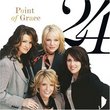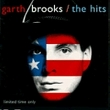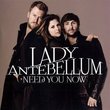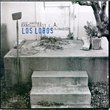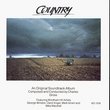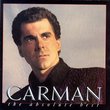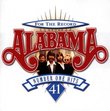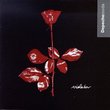| All Artists: James Horner Title: Star Trek II: The Wrath Of Khan - Original Motion Picture Soundtrack Members Wishing: 1 Total Copies: 0 Label: Gnp Crescendo Original Release Date: 2/5/1991 Re-Release Date: 1/21/1992 Album Type: Soundtrack Genres: Pop, Soundtracks Style: Number of Discs: 1 SwapaCD Credits: 1 UPCs: 052824802223, 0090204093847, 090204093847 |
Search - James Horner :: Star Trek II: The Wrath Of Khan - Original Motion Picture Soundtrack
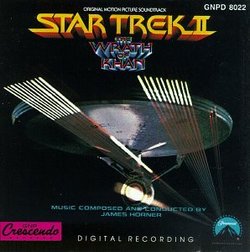 | James Horner Star Trek II: The Wrath Of Khan - Original Motion Picture Soundtrack Genres: Pop, Soundtracks
|
Larger Image |
CD DetailsSimilar CDs
Similarly Requested CDs
|
CD ReviewsHorner's score for second Trek film evokes Hornblower spirit Alex Diaz-Granados | Miami, FL United States | 08/29/2004 (4 out of 5 stars) " When director Nicholas Meyer took on the daunting task of directing Star Trek II: The Wrath of Khan, he essentially discarded much of the first film's trappings, including the pajama-like Starfleet uniforms (known colloquially as "penguin grays") and it's oh-so-serious approach to storytelling, 23rd Century style. What the acclaimed writer and fledgling director wanted for his modestly-budgeted movie was a more "seagoing" adventure tale -- with literary references to works by Dickens, Milton, and Melville -- within the context of the Star Trek universe. In order to accomplish this, Meyer called for new costumes, new and fresh takes on the characters and situations, and a new score that would not use any of Jerry Goldsmith's score for Star Trek: The Motion Picture. To compose the music for Star Trek II Meyer commissioned a young composer named James Horner, who had already scored a moderately successful film called Battle Beyond the Stars and would later win an Academy Award for the music of James Cameron's Titanic. Meyer and executive producer Harve Bennett stipulated that although Goldsmith's themes from ST:TMP were off-limits, Horner could use Alexander Courage's theme for Star Trek: The Original Series. Goldsmith had interpolated material from the TV show's main theme into his lush and grand score for the first feature film, but very subtly...certainly not in the way most fans expected. The only other directive Horner received was to create naval-sounding themes reminiscent of Horatio Hornblower, reinforcing Meyer's more militaristic Starfleet uniforms and traditions. The result: a score that evokes both Star Trek's roots as an intelligently written action adventure episodic series and the spirit of C.S. Forester's books about fighting tall ships in the Napoleonic era. This interesting marriage of musical ideas can be heard on GNP Crescendo's 1990 CD reissue of 1982's Star Trek II: The Wrath of Khan Original Motion Picture Soundtrack. Starting with the Main Title (Track 1) and its triumphant introduction of the "Where No Man Has Gone Before" fanfare, this short (its running time is one second shy of the 45-minute mark) album shows that Horner indeed does use very nautical-sounding motifs to underscore the space duels between Admiral James T. Kirk (William Shatner) and his nemesis Khan Noonien Singh (Ricardo Montalban). Listen, for instance, to Surprise Attack (Track 2) and your mind's eye will conjure images of the hijacked Starship Reliant ambushing the unsuspecting Enterprise, coming close alongside and, like a sailing frigate of old, unleashing a phaser broadside that carves a trail of death and destruction along the famed starship's once-pristine hull. Horner uses a combination of brassy martial fanfares and nervous phrasings by the strings section to convey the drama of Khan's first attack. In Spock (Track 3), a short cue that underscores the scene when Spock (Leonard Nimoy) tells Kirk that command of a starship is the admiral's "first, best destiny," Horner uses muted woodwinds and a harp to create an other worldly mood for the half-Vulcan Starfleet officer. In a similar vein, he uses spooky Psycho-like orchestrations with tense strings and dark passages to describe the Ceti eels in the cue titled Khan's Pets (Track 5). However, it's the sea-going spirit of the Horatio Hornblower influence that dominates the score for Star Trek II, as Track 6, Enterprise Clears Moorings clearly illustrates in the music heard as the USS Enterprise leaves Spacedock on what is supposed to be a "little training cruise." The sailing ship thematic material is reprised in Battle in the Mutara Nebula(Track 7) and the race-against-the-clock cue Genesis Countdown (Track 8), heard as Enterprise, her warp drive offline and heavily damaged in battle, limps away from the doomed Reliant and the deadly Genesis device, which has been set to go off by the revenge-obsessed Khan. Epilogue/End Title (Track 9) brings the album to a close with reflective music that underscores the last scenes with Admiral Kirk on the bridge of the Enterprise. We cut away to the famous "Space: the final frontier..." voiceover by Leonard Nimoy (the first time the famous Enterprise mission statement was not spoken by series lead Shatner) and the TV show fanfare by Alexander Courage, which segues one more time to the Navy march-like themes of Horner's score for The Wrath of Khan. Although this 1990 GNP Crescendo reissue of the Atlantic Records 1982 soundtrack comes with a summary of the film's plot, there are no liner notes dealing with Horner's music, and no unreleased tracks were added; it would have been nice to hear the "Amazing Grace" bagpipe solo segue into the beautiful cue heard as Spock's photon torpedo casket is shot into space, but it wasn't restored for the CD edition. Nevertheless, Star Trek II is still an enjoyable album that not only captures the spirit of one of the best films of the franchise, but also foreshadowed James Horner's future success as the composer of the best selling soundtrack album, 1997's Titanic. " A brilliant--if incomplete--adventure score! James Mason | Dearborn, MI United States | 11/12/2000 (4 out of 5 stars) "In my heart of hearts, Jerry Goldsmith's overture from STAR TREK: THE MOTION PICTURE will always be the definitive STAR TREK theme. All the others (with the exception of the ST II:TWOK score) are just pale imitations and wannabes. But James Horner accomplishes what the other TREK composers have failed to do: he composed a lavish, fast-paced, aggressive score that by its very nature leaves you giddy with uncontrollable excitement. It's a pity that the soundtrack album, so like so many other soundtrack recordings, is incomplete. The rousing "Battle In The Mutara Nebula" is cut off after the Enterprise gets blasted across the torpedo port; the sequence where the ship snakes around in the nebula and blows Khan's RELIANT to kingdom come from behind (the film's action high point!) is missing, as is the funeral music for Spock, the cues for the Genesis cave and the two scenes where the Ceti eels are implanted and destroyed. A SUPERMAN-style score expansion is desperately needed, as the audio experience here feels incomplete.That said, the cues presented here are outstanding (hence the 4 star rating...it would have been 5 had the score been complete). While Horner's fanfare isn't as definitive as Goldsmith's, it's still a fine, adventurous piece of music. The action cues included here are rollicking and furious (perfect for listening to while reading comic books!), the Spock theme is appropriately gentle and restrained, and the closing suite is wistfully touching. While Horner has gone on to compose many superb film scores (his GRINCH music is a great comedic treat), ST II:TWOK remains his finest work. Hopefully, the score will be expanded one day so that this glorious music can truly be heard in its full glory." James Horner Proves His Talent Justin Lowry | Urbana, IL United States | 08/14/2002 (5 out of 5 stars) "Sure, one can complain that Horner rips himself off constantly, especially in more recent times, but it cannot be denied that his themes are consistently memorable and stirring. His music for "Star Trek II: The Wrath of Khan" is no different.The main theme is an excellent set-up for a dramatic epic. Most of the Trek films have great main themes, but what really sets this score apart is its consistency throughout. It provides several different themes that are each excellent and varied yet unified to enhance the space operatic nature of the movie.Take for instance, "Spock" which adds a mystical tone to the film, setting up for its extension in "Star Trek III" (also with music by James Horner). "Spock" has a beautiful eeriness to it and offers a respite between cues."Surprise Attack" is a superb action cue that despite its pounding and odd keys is quite listenable outside the film. The cue is great at building tension and at the same time has a very Star Trek feel to it.Other cues like "Enterprise Clears Moorings" and "Battle in the Mutara Nebula" stand out as well. One extends the awe of the Enterprise's intro, the other heightens the epic mood in the prologue and action of the battle.This score is one of James Horners best and most consistently beautiful scores."
|

 Track Listings (9) - Disc #1
Track Listings (9) - Disc #1
